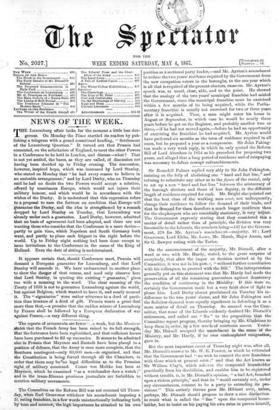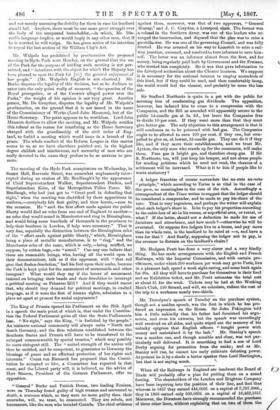But the most important event of Thursday night was, after
all, Mr. Disraeli's answer to Mr. W. E. Forster, in which he reiterated that the Government had " no wish to connect the new franchises with those which at present exist ;" and that the Act known as Sir William Clay's, which relisves the compound householder practically from his disabilities, and enables him to be registered without trouble, is, in Mr. Disre.eli's opinion, " a bad Act, founded upon a vicious principle," and that he " would certainly riot, under any circumstances, consent to be a party to extending its pro- visions." This entirely throws poor Mr. Hibbert over, unless, perhaps, Mr. Disraeli should propose to draw a nice dietigction to remit what is called. the " fine " upon the compotuid house- holder, but to insist on his pairing his own rates in person himself, and not merely assuming the liability for them in case his landlord should fail. Anyhow, there must be one more great struggle over the body of the compound householder,—in which, Mr. Dis- raeli's language implies, or would imply in any other man, that if he is worsted he will resign, lie has given notice of his intention to repeal the last section of Sir William Clay's Act.































